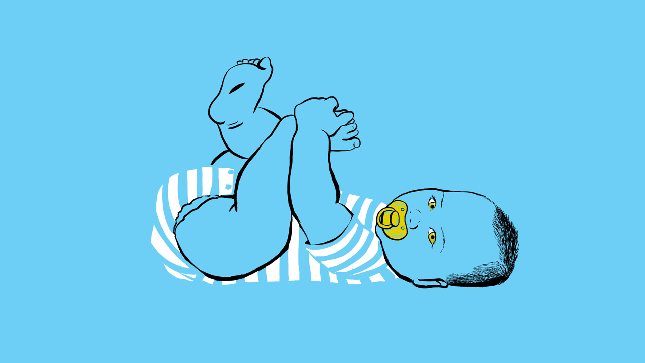Dad Takes Care of Infant for One Day, Discovers ‘Babies Are Boring’
Latest

Babies are sometimes delightful and hilarious and fun, sometimes more soul-crushingly boring than a conversation about landscaping materials. Join us as one man discovers this kaleidoscope of living for the very first time.
His name: Stuart Heritage.
His journey: Caring for his infant son for a single day.
His crime: Sounding like a caricature of a dude/dad.
His defense: Was trying to be sweet, appreciative.
Only thing worse than this story: The comments.
Writing at The Guardian, Heritage pens a column about barely surviving a mere single day with his roughly six-month-old kid while his wife is home sick with a migraine. Normally, he slips out to work without having to lift a finger with the boy, but today, that fateful day, he was Parent Number One.
It went well at first, he writes, strapping the baby to his chest and catching up on some laundry, an ENTIRE movie, and a few podcasts. If this is what his wife was doing all day while he “toiled for pennies,” it hardly seemed just. Then, things take a turn:
But then, in the afternoon, out of absolutely nowhere, time suddenly screeched to a halt. It was just me and him until bedtime, and bedtime was a million years away. What was I supposed to do? We stuck our tongues out at each other until we both got bored. We played with a set of plastic keys, but that got old just as quickly. Tummy time came and went, as did the new game I invented where I make a whistling noise and then bop him on the nose with my thumb. Copious unnecessary selfies were taken. After all this, I checked the clock. It was still only 2pm. I was outraged.
From that point, the structure of the day fell apart totally. It became a paragraph without punctuation, an infinite game of Buckaroo! where the sole objective was to keep my baby from crying. I love him and everything but, wow, babies are boring.
In his defense, this is also how I felt taking care of a baby during those early days. However, I was the baby’s mother, and I had no such luxury of nonchalance about my comical ineptitude. While I wrote freely about the experience, I received immediate, constant and sharp criticism: I should have never had a baby in the first place, I should shut up, stop whining, and stop acting like I was the first person to have a child, I should think of how awful it would be for my child to ever know it wasn’t a thrill a minute. In other words: how dare I be openly bored?
-

-

-

-

-

-

-

-

-

-

-

-

-

-

-

-

-

-

-

-

-

-

-

-

-

-

-

-

-

-

-

-

-

-

-

-

-

-

-

-








































